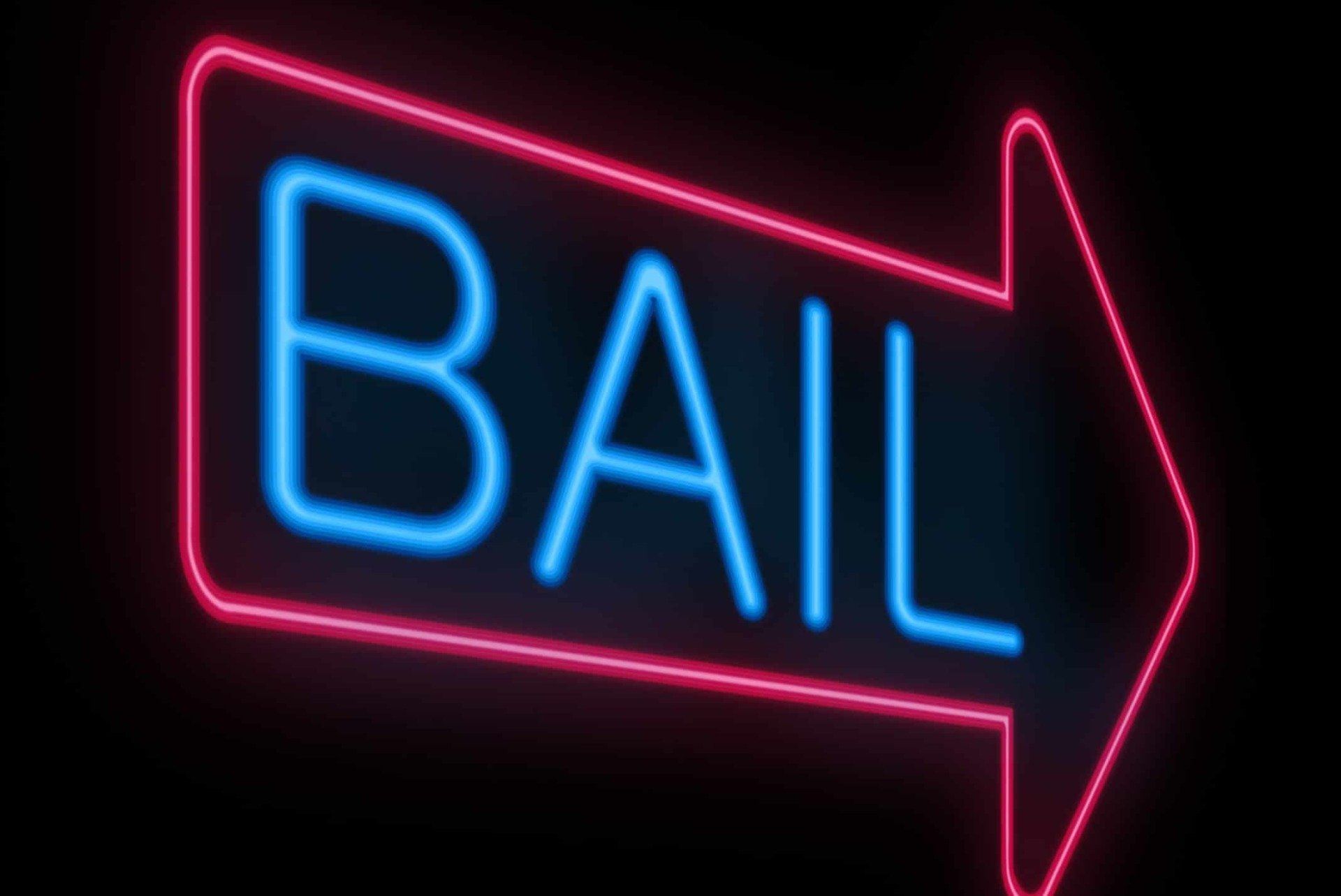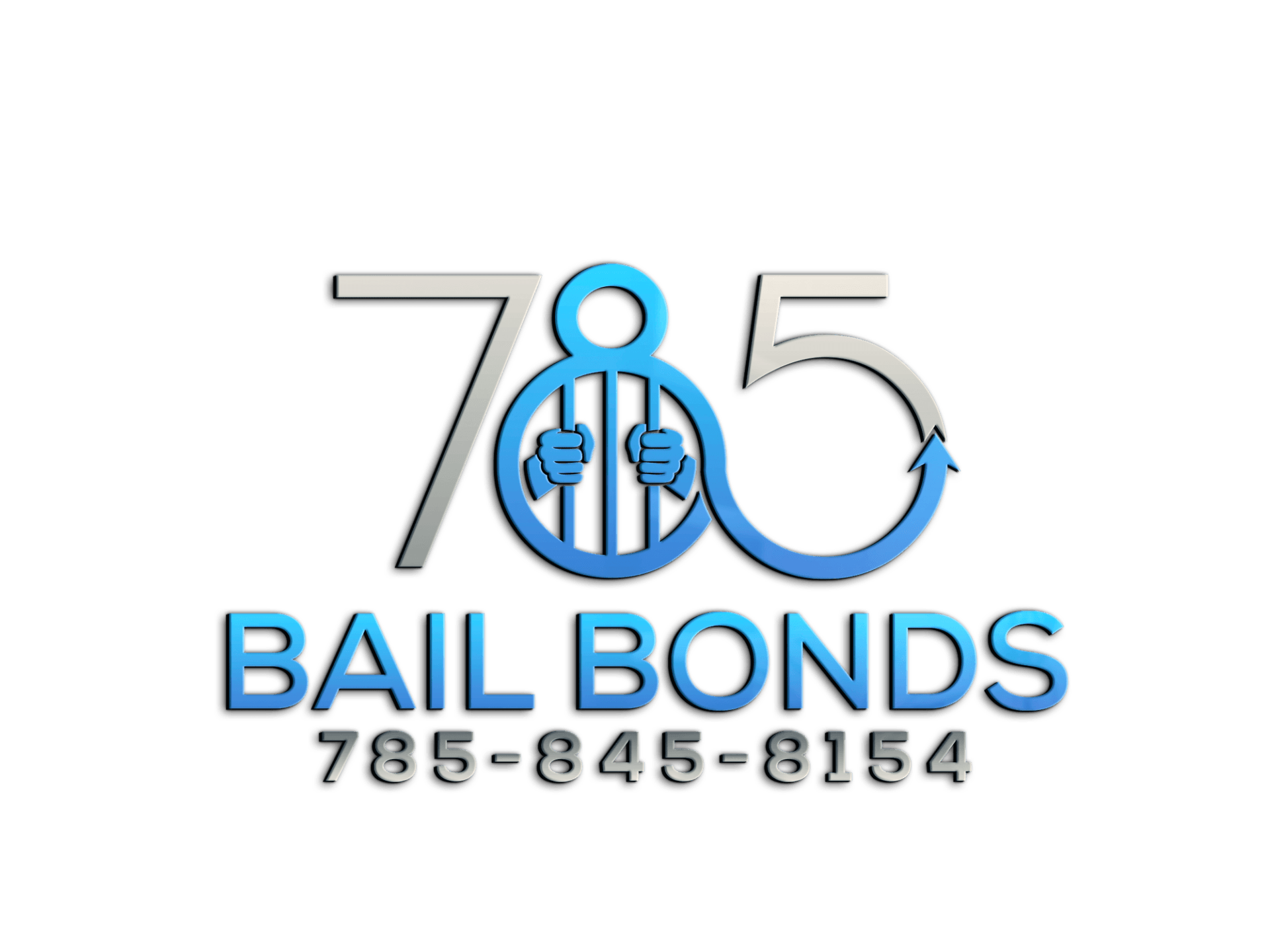
Most people have never even thought about the process of having to post bail for themselves or a loved one. The process can be overwhelming, and mistakes can be made easily. The best thing to do is to make sure you understand how bail bonds works, and the difference between certain types of bonds. Here are some things to keep in mind:
- Make sure you are working with a reputable company. Facebook, Google, and other internet platforms offer customer reviews on individual businesses. Look for the companies with the better ratings. And remember, leave a review of your experience.
- Almost all bondsman requires cosigners. Cosigners are the contact for the bondsman in the event the defendant cannot be reached. They are responsible that the defendant shows up to each court date until the case is finished (sentencing, diversion, etc.) DO NOT cosign for someone you don’t know very well or someone you don’t trust. In the event the defendant does not go to court, can’t be reached, and the court forfeits the bond, the cosigner will be responsible for the full amount of the bond.
- Mistakes happen. If the defendant misses their court date, notify the bondsman immediately. They can help to make sure you can get a new court date without a warrant being issued or being arrested again. Missed court dates are “easy fixes” if you keep an open line of communication with your bondsman.
- Be aware of your bond conditions. Violating the conditions of your bond can land you back in jail. Before you leave jail, you will receive paperwork stating your conditions. Your bondsman will go over these with you. Depending on the charges against you, conditions can be anything from not leaving the state or country, not having contact with an individual or business, not having drugs or alcohol in your system, etc. These can often be modified later by a judge, but until then, you will want to make sure you abide by these.
As as always if you have any questions do not hesitate to call Brad at 785-845-8154

22-2802. Release prior to trial; conditions of release; appearance bond, cash bond or personal recognizance. [See Revisor's Note] (1) Any person charged with a crime shall, at the person's first appearance before a magistrate, be ordered released pending preliminary examination or trial upon the execution of an appearance bond in an amount specified by the magistrate and sufficient to assure the appearance of such person before the magistrate when ordered and to assure the public safety. If the person is being bound over for a felony, the bond shall also be conditioned on the person's appearance in the district court or by way of a two-way electronic audio-video communication as provided in subsection (14) at the time required by the court to answer the charge against such person and at any time thereafter that the court requires. Unless the magistrate makes a specific finding otherwise, if the person is being bonded out for a person felony or a person misdemeanor, the bond shall be conditioned on the person being prohibited from having any contact with the alleged victim of such offense for a period of at least 72 hours. The magistrate may impose such of the following additional conditions of release as will reasonably assure the appearance of the person for preliminary examination or trial:
(a) Place the person in the custody of a designated person or organization agreeing to supervise such person;
(b) place restrictions on the travel, association or place of abode of the person during the period of release;
(c) impose any other condition deemed reasonably necessary to assure appearance as required, including a condition requiring that the person return to custody during specified hours;
(d) place the person under a house arrest program pursuant to K.S.A. 2012 Supp. 21-6609, and amendments thereto; or
(e) place the person under the supervision of a court services officer responsible for monitoring the person's compliance with any conditions of release ordered by the magistrate. The magistrate may order the person to pay for any costs associated with the supervision provided by the court services department in an amount not to exceed $15 per week of such supervision. The magistrate may also order the person to pay for all other costs associated with the supervision and conditions for compliance in addition to the $15 per week.
(2) In addition to any conditions of release provided in subsection (1), for any person charged with a felony, the magistrate may order such person to submit to a drug and alcohol abuse examination and evaluation in a public or private treatment facility or state institution and, if determined by the head of such facility or institution that such person is a drug or alcohol abuser or is incapacitated by drugs or alcohol, to submit to treatment for such drug or alcohol abuse, as a condition of release.
(3) The appearance bond shall be executed with sufficient solvent sureties who are residents of the state of Kansas, unless the magistrate determines, in the exercise of such magistrate's discretion, that requiring sureties is not necessary to assure the appearance of the person at the time ordered.
(4) A deposit of cash in the amount of the bond may be made in lieu of the execution of the bond pursuant to subsection (3). Except as provided in subsection (5), such deposit shall be in the full amount of the bond and in no event shall a deposit of cash in less than the full amount of bond be permitted. Any person charged with a crime who is released on a cash bond shall be entitled to a refund of all moneys paid for the cash bond, after deduction of any outstanding restitution, costs, fines and fees, after the final disposition of the criminal case if the person complies with all requirements to appear in court. The court may not exclude the option of posting bond pursuant to subsection (3).
(5) Except as provided further, the amount of the appearance bond shall be the same whether executed as described in subsection (3) or posted with a deposit of cash as described in subsection (4). When the appearance bond has been set at $2,500 or less and the most serious charge against the person is a misdemeanor, a severity level 8, 9 or 10 nonperson felony, a drug severity level 4 felony committed prior to July 1, 2012, a drug severity level 5 felony committed on or after July 1, 2012, or a violation of K.S.A. 8-1567, and amendments thereto, the magistrate may allow the person to deposit cash with the clerk in the amount of 10% of the bond, provided the person meets at least the following qualifications:
(A) Is a resident of the state of Kansas;
(B) has a criminal history score category of G, H or I;
(C) has no prior history of failure to appear for any court appearances;
(D) has no detainer or hold from any other jurisdiction;
(E) has not been extradited from, and is not awaiting extradition to, another state; and
(F) has not been detained for an alleged violation of probation.
(6) In the discretion of the court, a person charged with a crime may be released upon the person's own recognizance by guaranteeing payment of the amount of the bond for the person's failure to comply with all requirements to appear in court. The release of a person charged with a crime upon the person's own recognizance shall not require the deposit of any cash by the person.
(7) The court shall not impose any administrative fee.
(8) In determining which conditions of release will reasonably assure appearance and the public safety, the magistrate shall, on the basis of available information, take into account the nature and circumstances of the crime charged; the weight of the evidence against the defendant; whether the defendant is lawfully present in the United States; the defendant's family ties, employment, financial resources, character, mental condition, length of residence in the community, record of convictions, record of appearance or failure to appear at court proceedings or of flight to avoid prosecution; the likelihood or propensity of the defendant to commit crimes while on release, including whether the defendant will be likely to threaten, harass or cause injury to the victim of the crime or any witnesses thereto; and whether the defendant is on probation or parole from a previous offense at the time of the alleged commission of the subsequent offense.
(9) The appearance bond shall set forth all of the conditions of release.
(10) A person for whom conditions of release are imposed and who continues to be detained as a result of the person's inability to meet the conditions of release shall be entitled, upon application, to have the conditions reviewed without unnecessary delay by the magistrate who imposed them. If the magistrate who imposed conditions of release is not available, any other magistrate in the county may review such conditions.
(11) A magistrate ordering the release of a person on any conditions specified in this section may at any time amend the order to impose additional or different conditions of release. If the imposition of additional or different conditions results in the detention of the person, the provisions of subsection (10) shall apply.
(12) Statements or information offered in determining the conditions of release need not conform to the rules of evidence. No statement or admission of the defendant made at such a proceeding shall be received as evidence in any subsequent proceeding against the defendant.
(13) The appearance bond and any security required as a condition of the defendant's release shall be deposited in the office of the magistrate or the clerk of the court where the release is ordered. If the defendant is bound to appear before a magistrate or court other than the one ordering the release, the order of release, together with the bond and security shall be transmitted to the magistrate or clerk of the court before whom the defendant is bound to appear.
(14) Proceedings before a magistrate as provided in this section to determine the release conditions of a person charged with a crime including release upon execution of an appearance bond may be conducted by two-way electronic audio-video communication between the defendant and the judge in lieu of personal presence of the defendant or defendant's counsel in the courtroom in the discretion of the court. The defendant may be accompanied by the defendant's counsel. The defendant shall be informed of the defendant's right to be personally present in the courtroom during such proceeding if the defendant so requests. Exercising the right to be present shall in no way prejudice the defendant.
(15) The magistrate may order the person to pay for any costs associated with the supervision of the conditions of release of the appearance bond in an amount not to exceed $15 per week of such supervision. As a condition of sentencing under K.S.A. 2012 Supp. 21-6604, and amendments thereto, the court may impose the full amount of any such costs in addition to the $15 per week, including, but not limited to, costs for treatment and evaluation under subsection (2).

Many people associate bail with a specific cash amount. The general idea is that if you have the money to pay bail after you are arrested, you can get out of jail. But bail is often more complicated than that, especially when the bail amount is large.
In any state or jurisdiction there may be a variety of bail types available. While some types of bail are not available in all states or situations, and some are more or less often employed than others, defendants can expect to encounter one of more of the following types of bail.
1. Cash Bond or "ORCD"
In many situations, the police will not release an arrestee with a simple citation, but will release the arrestee after booking if that person pays a cash bond. If the defendant does not have the money, someone else can pay the bail on behalf of the defendant.
The cash bond amount is determined by the state or local bail schedule, or by a court after a bail hearing. As long as the payer has enough money to cover the full bond amount, the defendant is released from police custody.
ORCD Bonds called Own Recognizances Cash Deposit. Are bonds ordered by the court and if you use the option you will post 10% of the total bond as cash. On this type of bond the cash receipt has to be put in the name of the individual bonding and will be held in account in the individuals name and used for fines and fees. If the case is dismissed or found not guilty by the courts that money is returned to the individual. There are certain requirements to qualify for this type of bond.
(A) Is a resident of the state of Kansas;
(B) has a criminal history score category of G, H or I;
(C) has no prior history of failure to appear for any court appearances;
(D) has no detainer or hold from any other jurisdiction;
(E) has not been extradited from, and is not awaiting extradition to, another state; and
(F) has not been detained for an alleged violation of probation.
The ORCD max bond is set at $2,500.00 so the max the person would have to pay to be released from jail would be $250.002. Own Recognizances or Personal Recognizances Bond
Sometimes, a court releases an in-custody defendant on his or her own recognizances or on personal recognizances, also known as an OR or PR bond. OR and PR bonds are similar to a citation and release, only they take place after a court holds a bail hearing. If the court allows this type of bail, the defendant will be released from custody on the condition that he or she reappear in court at a later time and comply with any other bail conditions the court imposes.
3. Bail Bond or Surety Bond
A bail bond is a form of bail payment provided on a defendant’s behalf by a bail bond agent. Bail bond agents, also known as bondsmen, are people who are in the business of paying bond on behalf of criminal defendants. When defendants use a bail bond agent, they pay the agent a fee and the agent acts as a surety, telling the court that they (the bond agents) will pay the full bond amount should the defendant fail to appear at court.
Bail bond agents make money by collecting a fee from those who want to be bailed out. Typically, that fee is 10% of the amount of bail. So, if a court sets a defendant’s bail at $10,000, that defendant (or someone acting on the defendant’s behalf) can pay a bail bond agent $1,000 and the bond agent will act as a surety on the defendant’s behalf. This is a non refundable fee.
4. Secured or Property Bond (Depends on the courts)
A secured bond, or “property bond,” is a type of bail in which the defendant gives the court a security interest in property equal to the worth of the total bail amount. A security interest is a legal right to possess or take a specific piece of property given by the property’s owner to the secured party.
For example, when you buy a car using a car loan, your lender gives you money to buy the car. In return for that money, you give the lender a security interest in the vehicle. You and the lender agree that should you fail to repay the loan in accordance with the terms to which you both agreed, the lender can repossess the car (the collateral) and sell it to recover the money you still owe. The same is true when a bank forecloses on a home when the homeowner fails to pay the mortgage. Both are forms of security interests.
So, with a secured property bond, the defendant or some other bond payer gives a security interest in a specific piece of property to the court as a form of bail. Should the defendant fail to later appear at court, the court can seize the property used as collateral to recover the unpaid bail.
Like secured or property bonds, bail bond agents typically require the defendant or the paying party to provide collateral or some other form of security against the bond. (Only under certain circumstances do we require collateral). They also require that the defendant sign a contract stating the terms of the agreement. Similarly, the bond agent might require the defendant, or someone else, to sign a security interest in a car, home, or other piece of property that the bond agent can repossess if the defendant fails to appear.




